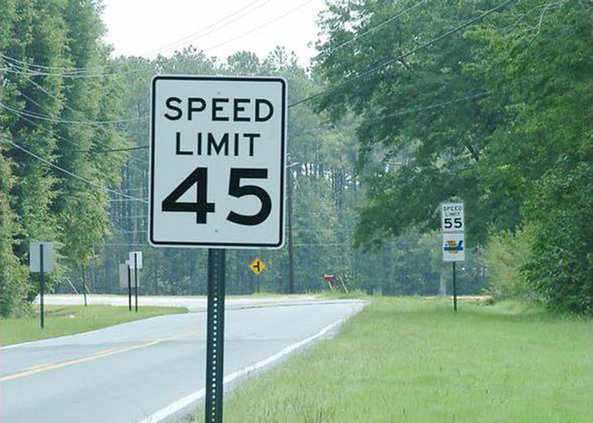SPRINGFIELD – In order to ameliorate some of its transportation challenges, the Effingham County Board of Commissioners went to where the rubber meets the road.
A vehicle equipped with high-resolution cameras and scanners recently scoured every foot of road in the county-maintained system. The survey was performed by Roberts Civil Engineering. The St. Simons firm used First Step Pavement Management (FSPM), a state-of-the-art evaluation technique designed and developed by the University of Arkansas, Greenberg-Farrow A&E and Ergon Asphalt & Emulsions.
FSPM data helps the board optimize the limited funds and resources it has to maintain more than 600 miles of roads.
“It’s a visual, non-destructive assessment of pavement conditions,” said Jeff Bors, the director of municipal consulting for Roberts Civil Engineering. “It analyzes every basic aspect of the roadway.”
FSPM gives roads one of the following ratings:
Excellent -- Pavement is in perfect condition; no corrective maintenance or preventive maintenance is required
Good – Preventive maintenance may be recommended; corrective maintenance is typically not recommended; pavement distress is limited to oxidation, weathering and minor climate-related damage; structure distress (if present) is localized and low density (less than 5 percent)
Fair – Preventive maintenance may be recommended; corrective maintenance may be recommended; a variety of pavement distresses may be present; structural distress may be localized as well as global; global structural damage is low severity/low density
Critical – Pavement is likely to be lost (and require reconstruction) within two years; a variety of pavement distresses may be present; surface and structural distresses are typically global in nature; a combination of corrective and preventive maintenance may be recommended
Lost – Pavement requires major maintenance and repair/reconstruction; shallow, deep and/or full-depth reconstruction may be recommended.
“One of the deliverables (FSPM) produces is a (Google Earth) map of the county’s entire roadway system,” Bors said. “Every single segment is color coded, which is neat, and it gives you a high-definition video that is linked to the map.
“You can click anywhere on any road and you are literally driving that road.”
The periodic use of FPMS will keep commissioners abreast of road conditions and help them make the best use of TSPLOST or LMIG funds.
TSPLOST (Transportation Local Option Sales Tax) is a one-percent county sales tax that can be used for roads, bridges, public transit, rails, airports, buses, bicycle paths, sidewalks, right-of-way acquisition, drainage and more. LMIG (Local Maintenance Improvement Grant) is a grant funded by the state motor fuel tax. Distribution is based on population.
With guidance from Roberts Civil Engineering, county government is stretching its transportation dollars by varying its methods to repair and preserve roads. FSPM logs pothole locations, water damage, cracking and evidence of stress.
“Each road may have a different requirement,” County Manager Tim Callanan said. “… It’s not how many miles of roads we can repave with $3 million. It’s how many years can be added to your road system with $3 million.”
“Pavement preservation,” a fairly new procedure, is used for the easiest fixes. It involves filling cracks with a liquid tar-like material, plus the addition of a coarse “scrub seal” and a micro layer of asphalt.
The scrub seal application process features a sled that houses a series of brooms placed at different angles that “scrub” emulsion into cracks. The fine layer of asphalt is then applied to ensure road smoothness.
There are multiple options to restore the county’s ash roads, many of which were damaged severely by Winter Storm Grayson in 2018. Ash is extremely susceptible to moisture and freezing temperatures.
Chip sealing is the least expensive option. Used in lower-traffic situations, it is a process where liquid asphalt is applied to seal the road. Then, a layer of chipped rock coated with asphalt is added to shield the seal and help improve traction. Once it is applied, the chip seal protects the road from becoming brittle and losing its ability to bend and flex.
“Most of our ash roads have been chip sealed at least once,” Callanan said.
The county allotted $7 million from the 2020 TSPLOST for FDR, a process in which the ash is blended with the existing dirt and asphalt/aggregate surface, and an asphalt emulsion. FDR was used on Scuffletown Road, Courthouse Extension, Archer Road, Mount Pleasant Road others.
“Certain roads that get a lot of truck traffic and have a lot of people that drive fast – legally or illegally -- that creates pressure in the turns – we had to do FDR on them,” Callanan said.
While FDR is expensive, it enabled the county to save countless millions of dollars on its most problematic roads by recycling current materials instead of having to haul them away and start from scratch.
“At first, we didn’t have any solutions,” Callanan. “The first process was to come up with ‘a’ solution and that solution was very expensive. Then we realized through direct experimentation that there are other solutions that are less expensive but they won’t work on every road.”
“If we had the money, FDR with an asphalt coating would work on every road but it would cost us $100 million. Now we can match a solution with a road and get it done fairly quickly,” Callanan said.





